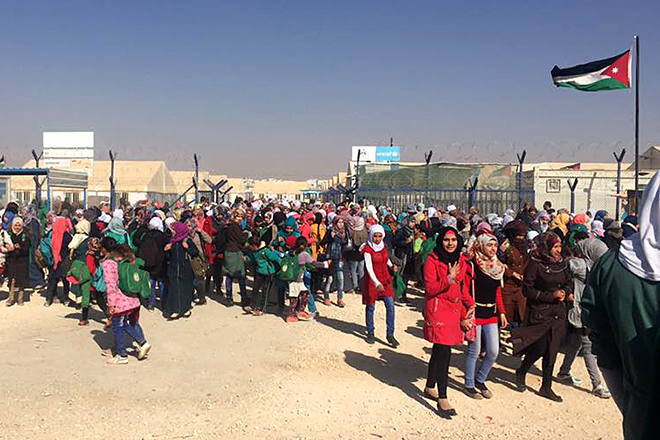Italian Cooperation intervenes in humanitarian crisis situations caused by catastrophic events, whether of human or natural origin, to provide relief, protection and assistance to populations and enable the speedy re-establishment of suitable conditions for resuming development processes. Italian Cooperation is committed to providing a fast, effective and efficient response suited to local needs.
Italian Cooperation attaches the utmost importance to respect for and the promotion of International Humanitarian Law, the fundamental humanitarian principles (humanity, neutrality, impartiality, independence), the Good Humanitarian Donorship (GHD) principles, the “European Consensus on Humanitarian Aid” and the commitments undertaken at the World Humanitarian Summit (WHS) in Istanbul and the Grand Bargain.
Italian Cooperation intervenes in this sector through:
- contributions to the humanitarian response of IOs such as the United Nations, the European Union, the International Red Cross and Red Crescent Movement;
- AICS-sponsored initiatives, with the support of the entities referred to in Article 23 of Law 125/2014, including, CSOs operating in the field (through calls for proposals) and/or other specialised partners, such as Italian hospital facilities or the Civil Protection Department;
- emergency transportation initiatives coordinated with the UN Humanitarian Response Depot in Brindisi, for the purpose of sending basic necessities.
The humanitarian actions of Italian Cooperation focus primarily on areas that are crucial for survival and improving essential conditions for life, such as food security and support to agriculture, access to water and sanitation, health, protection of refugees and displaced persons, gender equality, inclusion of persons with disabilities, protection of children and adolescents, education and vocational training to strengthen local response capacities, disaster risk reduction and, in particular, disaster prevention and preparedness initiatives, anticipatory action, and humanitarian demining.
Humanitarian Demining
Italian Cooperation finances mine clearance interventions in areas contaminated with anti-personnel mines, provides on-the-ground assistance to the victims of these devices, promotes information initiatives on the risk of unexploded ordnance, and advocates for the universalisation of the ban on anti-personnel mines, as provided for by the Ottawa Convention. In view of its mandate and the objectives it intends to achieve, any humanitarian intervention by Italian Cooperation should be considered free of charge (on a donation basis).
Situations of Fragility
Italian Cooperation promotes initiatives for responding to situations of fragility, which are understood as being the consequence of a combination of exposure to risk and the insufficient capacity by the State, system and/or communities to manage, absorb and mitigate these risks. Fragility may be a consequence of conflict or violence, climate issues, governance, absolute poverty, exposure to disaster or climate risks. Interventions in this field aim to address the root causes of crises and conflicts, and concern support for reconstruction and civil stabilisation processes, transitional justice, institution-building, democratisation and civil society development, disaster reduction, prevention and preparedness, vulnerability reduction (and strengthening of resilience programmes), assistance and protection of displaced persons, refugees, returnees or migrants.
 Parte dei fondi è tesa a finanziare sul canale multilaterale le spedizioni di aiuti umanitari – realizzate in collaborazione con il Deposito umanitario di pronto intervento delle Nazioni Unite a Brindisi (Unhrd) – e le attività condotte sul terreno dalle agenzie delle Nazioni Unite (Unicef, Unhcr, Unrwa, Pam, Ocha) e dal Comitato internazionale della Croce rossa. In Siria è stato avviato inoltre un Programma di emergenza per il miglioramento della sicurezza alimentare e delle condizioni igienico-sanitarie con l’obiettivo di rafforzare la resilienza della popolazione vittima della guerra e della crisi umanitaria in corso. Per le attività sono stati stanziati tre milioni di euro.
Parte dei fondi è tesa a finanziare sul canale multilaterale le spedizioni di aiuti umanitari – realizzate in collaborazione con il Deposito umanitario di pronto intervento delle Nazioni Unite a Brindisi (Unhrd) – e le attività condotte sul terreno dalle agenzie delle Nazioni Unite (Unicef, Unhcr, Unrwa, Pam, Ocha) e dal Comitato internazionale della Croce rossa. In Siria è stato avviato inoltre un Programma di emergenza per il miglioramento della sicurezza alimentare e delle condizioni igienico-sanitarie con l’obiettivo di rafforzare la resilienza della popolazione vittima della guerra e della crisi umanitaria in corso. Per le attività sono stati stanziati tre milioni di euro.